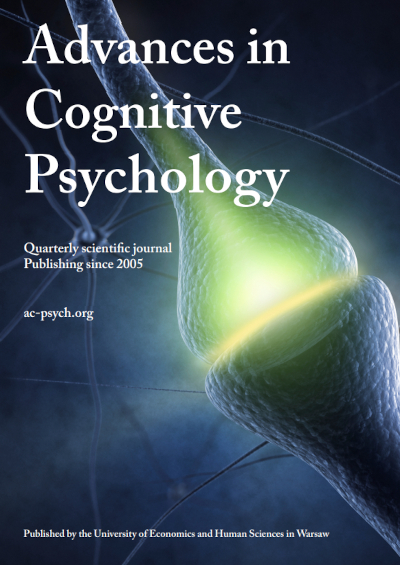Archive of all online content
-
Volume 21 Issue 4
pp. 309-500
(16 November 2025) -
Volume 21 Issue 3
pp. 212-308
(2 September 2025) -
Volume 21 Issue 2
pp. 120-211
(25 May 2025) -
Volume 21 Issue 1
pp. 1-93
(11 March 2025)
-
Volume 20 Issue 4
pp. 237-388
(20 November 2024) -
Volume 20 Issue 3
pp. 158-236
(19 August 2024) -
Volume 20 Issue 2
pp. 80-157
(24 June 2024) -
Volume 20 Issue 1
pp. 1-79
(1 March 2024)
-
Volume 19 Issue 4
pp. 1-105
(27 December 2023) -
Volume 19 Issue 3
pp. 211-333
(25 July 2023) -
Volume 19 Issue 2
pp. 111-200
(30 June 2023) -
Volume 19 Issue 1
pp. 1-110
(31 March 2023)
-
Volume 18 Issue 4
pp. 243-303
(31 December 2022) -
Volume 18 Issue 3
pp. 165-202
(30 September 2022) -
Volume 18 Issue 2
pp. 85-164
(30 June 2022) -
Volume 18 Issue 1
pp. 1-84
(31 March 2022)
-
Volume 17 Issue 4
pp. 250-291
(31 December 2021) -
Volume 17 Issue 3
pp. 193-249
(30 September 2021) -
Volume 17 Issue 2
pp. 99-192
(30 June 2021) -
Volume 17 Issue 1
pp. 1-98
(31 March 2021)
-
Volume 16 Issue 4
pp. 291-369
(31 December 2020) -
Volume 16 Issue 3
pp. 176-290
(30 September 2020) -
Volume 16 Issue 2
pp. 85-175
(30 June 2020) -
Volume 16 Issue 1
pp. 1-84
(31 March 2020)
-
Volume 15 Issue 4
pp. 236-317
(31 December 2019) -
Volume 15 Issue 3
pp. 169-235
(30 September 2019) -
Volume 15 Issue 2
pp. 75-168
(30 June 2019) -
Volume 15 Issue 1
pp. 1-74
(31 March 2019)
-
Volume 14 Issue 4
pp. 150-208
(31 December 2018) -
Volume 14 Issue 3
pp. 62-150
(30 September 2018) -
Volume 14 Issue 2
pp. 38-61
(30 June 2018) -
Volume 14 Issue 1
pp. 1-37
(31 March 2018)
-
Volume 13 Issue 4
pp. 267-322
(31 December 2017) -
Volume 13 Issue 3
pp. 190-266
(30 September 2017) -
Volume 13 Issue 2
pp. 121-189
(30 June 2017) -
Volume 13 Issue 1
pp. 1-120
(31 March 2017)
-
Volume 12 Issue 4 (special issue)
pp. 150-235
(31 December 2016) -
Volume 12 Issue 3
pp. 130-149
(30 September 2016) -
Volume 12 Issue 2
pp. 67-129
(30 June 2016) -
Volume 12 Issue 1
pp. 1-66
(31 March 2016)
-
Volume 11 Issue 4
pp. 118-135
(31 December 2015) -
Volume 11 Issue 3
pp. 64-117
(30 September 2015) -
Volume 11 Issue 2
pp. 31-63
(30 June 2015) -
Volume 11 Issue 1
pp. 1-30
(31 March 2015)
-
Volume 10 Issue 4
pp. 119-155
(31 December 2014) -
Volume 10 Issue 3
pp. 81-118
(30 September 2014) -
Volume 10 Issue 2
pp. 32-80
(30 June 2014) -
Volume 10 Issue 1
pp. 1-31
(27 February 2014)
-
Volume 9 Issue 4
pp. 156-223
(31 December 2013) -
Volume 9 Issue 3
pp. 112-155
(24 October 2013) -
Volume 9 Issue 2
pp. 53-111
(30 June 2013) -
Volume 9 Issue 1
pp. 1-52
(31 March 2013)
-
Volume 8 Issue 4
pp. 267-295
(31 December 2012) -
Volume 8 Issue 3
pp. 210-266
(27 September 2012) -
Volume 8 Issue 2
pp. 70-209
(28 June 2012) -
Volume 8 Issue 1
pp. 1-69
(29 March 2012)
-
Volume 7 Issue 2
pp. 55-156
(31 December 2011) -
Volume 7 Issue 1
pp. 1-54
(31 March 2011)
-
Volume 6 Issue 6
pp. 1-141
(31 December 2010)
-
Volume 5 Issue 5
pp. 1-134
(31 December 2009)
-
Volume 4 Issue 1
pp. 1-14
(31 March 2008)
-
Volume 3 Issue 4
pp. 419-465
(31 December 2007) -
Volume 3 Issue 3
pp. 363-417
(30 September 2007) -
Volume 3 Issue 1
pp. 1-361
(31 March 2007)
-
Volume 2 Issue 4
pp. 239-276
(31 December 2006) -
Volume 2 Issue 2
pp. 99-237
(30 June 2006) -
Volume 2 Issue 1
pp. 1-97
(31 March 2006)
-
Volume 1 Issue 1
pp. 1-16
()
Volume 17 Issue 3 (2021)
Auditory Attentional Load Modulates Audiovisual Integration During Auditory/Visual Discrimination
Yanna Ren, Nengwu Zhao, Junyuan Li, Junhao Bi, Tao Wang, Weiping Yang

Weiping Yang, Department of Psychology, Faculty of Education, Hubei University, Wuhan, 430062, China.
Email: swywp@163.com
Attention modulates numerous stages of audiovisual integration, and studies have shown that audiovisual integration is higher in attended conditions than in unattended conditions. However, attentional resources are limited for each person, and it is not yet clear how audiovisual integration changes under different attentional loads. Here, we explored how auditory attentional load affects audiovisual integration by applying an auditory/visual discrimination task to evaluate audiovisual integration and a rapid serial auditory presentation (RSAP) task to manipulate auditory attentional resources. The results for peak benefit and positive area under the curve of different probability showed that audiovisual integration was highest in the low attentional load condition and lowest in the high attentional load condition (low > no = medium > high). The peak latency and time window revealed that audiovisual integration was delayed as the attentional load increased (no < low < medium < high). Additionally, audiovisual depression was found in the no, medium, and high attentional load conditions but not in the low attentional load condition. These results suggest that mild auditory attentional load increases audiovisual integration, and high auditory attentional load decreases audiovisual integration.
Keywords: audiovisual integration, attentional load, auditory attention, discrimination task, race modelTask Interference in Prospective Memory: Adopting a Retrieval Mode and Checking for Targets
Melissa J. Guynn

Melissa J. Guynn, Department of Psychology, MSC 3452, New Mexico State University, P.O. Box 30001, Las Cruces, NM 88003-8001
Email: mguynn@nmsu.edu
Embedding a prospective memory task in an ongoing activity can interfere with performance of that ongoing activity. One explanation of this task interference is that it entails (a) adopting a retrieval mode or readiness to encounter the targets that indicate when to perform the intended action and (b) checking the environment for those targets. An experiment using a new method is reported and provides evidence for these processes. On control trials, participants performed just the ongoing activity (a short-term memory task combined with a 4-choice RT task). On experimental trials, a prospective memory task (press the Enter key if certain words appear in the short-term memory task) was embedded in the ongoing activity. Evidence for adopting a retrieval mode came from finding slower RT task performance on control trials when participants had already been instructed about the prospective memory task than when they had not yet been so instructed. Evidence for target checking came from finding slower RT task performance on experimental trials when a target could appear in any one of five locations than in just one location.
Keywords: prospective memory, task interference, retrieval mode, target checkingProspective and Retrospective Verbal Time Estimation in Children with ADHD
Marco Walg, Helmut Prior

Marco Walg, Zentrum für seelische Gesundheit des Kindes- und Jugendalters, Sana-Klinikum Remscheid, Weststraße 103, 42119, Wuppertal, Germany
Email: marco.walg@sana.de
There is increasing evidence that timing deficits represent a primary cause of key symptoms in ADHD. However, results in experiments on timing may vary with different methods of assessing timing competencies. The present study directly compared two central paradigms, namely, prospective and retrospective time estimation in children with (n = 30) and without (n = 29) ADHD. In both conditions, durations were estimated considerably longer by children with ADHD. Children with ADHD significantly overestimated the real duration of the task compared to children without ADHD in the retrospective but not in the prospective condition. In general, prospective estimates were more accurate than retrospective ones. The findings corroborate the essential role that timing deficits and a faster internal clock play in ADHD. Furthermore, the results demonstrate the importance of careful differentiation between prospective and retrospective time estimation.
Keywords: ADHD, time processing, verbal time estimationIs Exposure to the Memories of Others a Necessary Precondition for Collaborative Inhibition?
Justina Ohaeri Ekeocha

Justina O. Ekeocha, Department of Psychology, William Paterson University, 300 Pompton Road, Wayne, NJ 07470
Email: ekeochaj@wpunj.edu
In recall tasks, pooled individual productivity is generally greater than collaborative productivity, an effect called collaborative inhibition. This effect is believed to be caused by disruption of individual organizational strategies in the collaborative context due to exposure to the memories of others. The present study directly tested the exposure explanation. Three-person groups viewed a slide presentation and later recalled the content first as individuals, and subsequently as groups that were either exposed or not exposed to the memories of others. Results show that shielding participants from the contributions of others did not eliminate collaborative inhibition. The need to give more research attention to social factors is discussed.
Keywords: collaborative recall, collaborative inhibition, group recall, group memory, collaborative rememberingPsychological Evaluation of Attention Indices and Directed Visual Perception Using Neurofeedback Training
Mirosław Mikicin

Mirosław Mikicin, Interfaculty Laboratory of Neuropsychophysiology, Józef Piłsudski University of Physical Education, Marymoncka 34, 00-968 Warsaw, Poland
Email: miroslaw.mikicin@awf.edu.pl
The goal of the study was to psychologically assess the overall ability to be attentive during the prolonged focus of oriented visual perception during task performance. Attention and oriented visual perception significantly enhance task performance. Forty students in the early stages of military university studies participated in the study. The Vienna Test System examining general attention, continuity of attention, and directed visual tracking was used. The study involved two measurements (before and after 20 attention training sessions using the neurofeedback method). The psychological ability to select stimuli and maintain continuous attention was assessed to determine cognitive readiness for the task and the focus and accuracy of visual recognition. A psychological evaluation of the attention and oriented visual perception showed that the neurofeedback contributed to reducing the task completion time (p < .050), the time of correctly accepted stimuli, the time of incorrect responses, increasing the sum of correct responses, and the median of correct answers determined compared to time limit. An improvement was found in maintaining attention when performing a repetitive task over a long period of time and matching task completion time with maintaining attentiveness.
Keywords: enhancing beta1 band bioelectrical activity, selective attention, focus and continuity of attention, oriented visual tracking, maintaining attentivenessEgo Depletion and Time Pressure Promote Spontaneous Deception: An Event-Related Potential Study
Wei Fan, Ying Yang, Wenjie Zhang, Yiping Zhong

Yiping Zhong, Cognition and Human Behavior Key Laboratory of Hunan Province, Hunan Normal University, Changsha, 410081, China.
Email: ypzhong@hunnu.edu.cn
Event-related potentials (ERPs) were used to explore the influence of ego depletion on spontaneous deception under time pressure. The Stroop Color–Word test was used to manipulate the participants’ ego depletion in the experiment. A visual perception task was employed to assess the participants’ deceptive tendency. The results indicated that the ego-depleted group was more prone to engaging deception and induced a larger P3 amplitude than did the nondepleted group. The no-time pressure group was more likely to deceive and induced a larger P3 amplitude than did the high-time pressure group. These results suggest that individuals with sufficient resources for self-control are more likely to resist temptation and less likely to engage in self-serving deception. Higher time pressure made subjects more likely to cheat. Deception is automatic and spontaneous under certain conditions. Ego depletion and high time pressure promote the occurrence of deception.
Keywords: ego depletion, time pressure, deception, P3 amplitude


